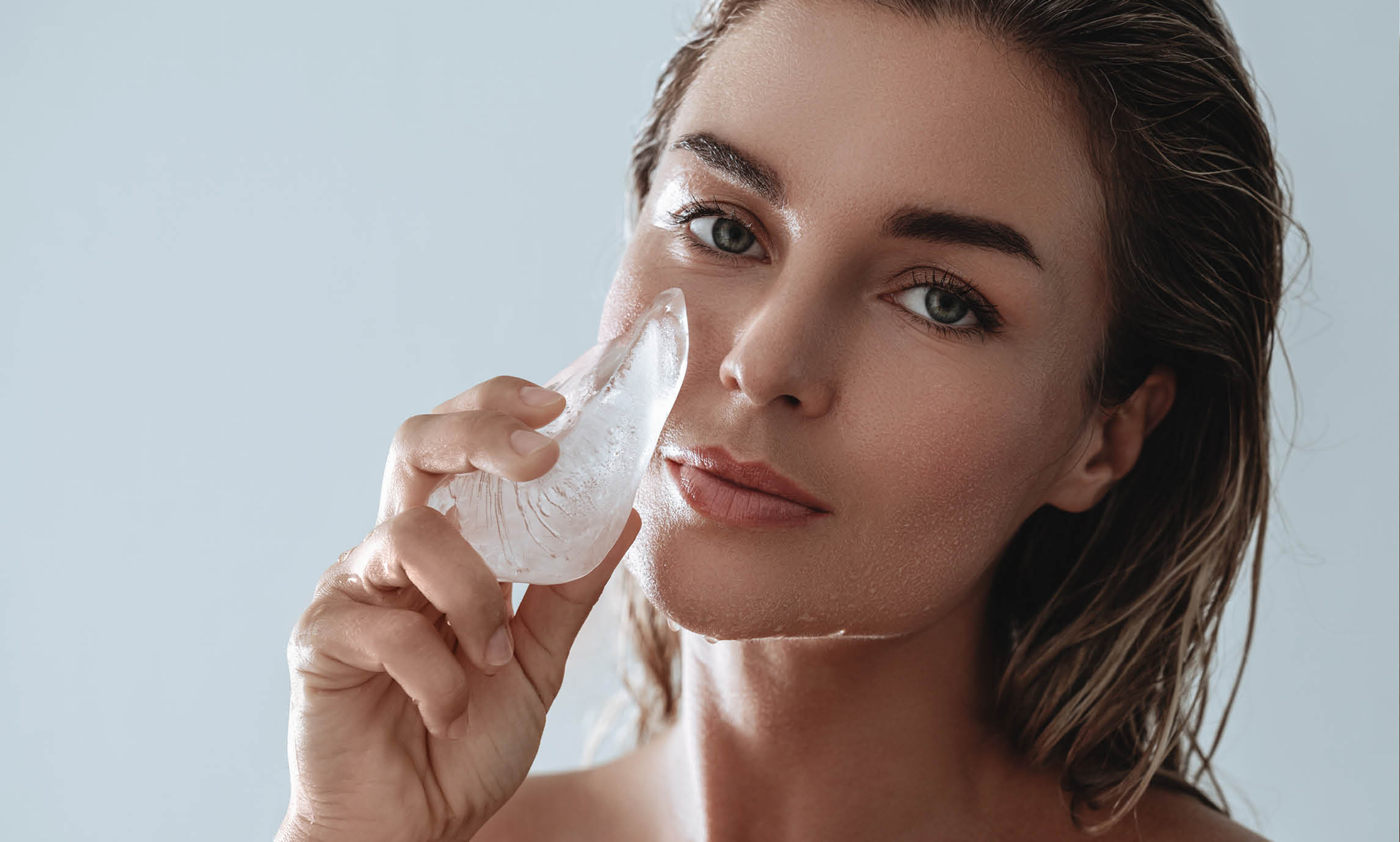Holistic Approaches to Inflammation & Skin Barrier Repair
by Naima Solano and Dominique Caron
Inflammation and a compromised skin barrier are often the unseen culprits behind many common skin concerns. Conditions like redness, sensitivity, premature aging, and persistent acne frequently originate from these underlying issues. Traditional skincare approaches often focus on addressing symptoms rather than addressing root causes. However, a holistic approach recognizes the interconnectedness of skin health with overall wellness. By addressing both symptoms and root causes, estheticians can guide clients toward healthier, more resilient skin.
The Interconnectedness Between Skin Inflammation and the Skin Barrier
Skin inflammation and the skin barrier are deeply intertwined. Inflammation, whether acute or chronic, can weaken the skin barrier, while a compromised skin barrier increases susceptibility to inflammation. Together, they create a cycle that impacts skin health, accelerating aging, and exacerbating common conditions like acne, rosacea, and dryness.
What is Skin Inflammation and What Causes It?
Skin inflammation is the body’s natural defense mechanism against threats such as injury, allergens, or infections. However, when it becomes chronic, it can significantly impair skin health.
Typical Causes of Skin Inflammation:
- Environmental Factors: UV radiation, pollution, and harsh weather.
- Allergies and Sensitivities: Reactions to skincare ingredients or external allergens.
- Hormonal Imbalances: Often linked to stress, lifestyle, or natural hormonal cycles.
- Diet and Gut Health: Poor nutrition or imbalances in the gut microbiome can drive inflammation.
- Skincare Misuse: Overuse of exfoliants, retinoids, or harsh cleansers.
- Dehydration: Insufficient moisturization can weaken the skin barrier and lead to inflammation.
How Is the Skin Barrier Connected to Skin Inflammation?
The skin barrier acts as a protective shield from external factors that can lead to inflammation.
Functions of a Healthy Skin Barrier:
- Prevents Water Loss: Keeps skin hydrated and prevents dryness and flaking.
- Shields Against Environmental Stressors: Protects from UV damage, pollutants, and harmful microorganisms.
- Supports Skin Resilience: Maintains the skin’s ability to heal, repair, and defend itself.
- Regulates the Microbiome: Creates a balanced environment for beneficial microbes to thrive.
When the skin barrier is compromised, the skin experiences increased permeability, increased TEWL, imbalance of the skin microbiome, and is not as effective in fighting free radicals. This makes the skin more susceptible to inflammation and overall imbalance.
What Does a Compromised Skin Barrier Look Like?
A compromised skin barrier does not always present obvious signs of inflammation, such as redness or swelling, making it more difficult to identify. While inflammation is a visible reaction, a weakened skin barrier may lead to subtle symptoms like dryness, sensitivity, or impaired hydration, which can still exacerbate skin issues over time.
Visible Signs of a Compromised Skin Barrier:
- Dryness & Dehydration: Reduced moisture retention due to transepidermal water loss (TEWL).
- Excessive Oiliness: Sebaceous glands overcompensate for the loss of moisture.
- Increased Sensitivity: Heightened reactivity to products, pollutants, and environmental changes.
- Breakouts: Clogged or inflamed pores due to barrier dysfunction.
- Itching: A common sign of irritation and dehydration.
- Delayed Healing: Prolonged recovery times for blemishes or wounds.
Low-level inflammation can be present even when the skin appears mostly healthy, subtly impacting its overall balance and resilience. Recognizing these early signs is crucial for preventing further damage and restoring optimal skin health.
What Causes a Compromised Skin Barrier?
Several factors can lead to a compromised skin barrier, often overlapping with causes of skin inflammation. In addition to acute triggers, low-level inflammation in normal skin can also compromise the barrier over time.
Damage to the skin barrier can result from a combination of internal and external factors:
- Incorrect Skincare Practices:
- Overuse of exfoliants, retinoids, or other actives.
- Harsh cleansers that strip natural lipids.
- Hot water or skipping moisturizers.
- Incompatible or poorly formulated skincare products.
- Environmental Factors:
- Dry Weather: Low humidity increases TEWL.
- UV Damage: Prolonged sun exposure breaks down lipids and damages skin cells.
- Pollution: Accelerates oxidative stress and barrier breakdown.
- Lifestyle Factors:
- Poor Diet: Lack of essential fatty acids and antioxidants diminishes resilience.
- Stress: Elevated cortisol impairs skin repair and hydration.
- Smoking and Alcohol: Damages skin cells and reduces hydration levels.
- Medical Conditions:
- Conditions like eczema, psoriasis, or rosacea inherently compromise the barrier.
- Hormonal imbalances alter oil production and hydration.
- Aging:
- Natural decline in ceramides, lipids, and natural moisturizing factors (NMFs) weakens the barrier over time.
These seemingly minor stressors can accumulate, leading to inflammation and a compromised barrier, even in otherwise healthy skin.
Skin inflammation and the skin barrier are inseparably connected. Chronic inflammation weakens the barrier, while a compromised barrier leaves the skin more vulnerable to inflammatory triggers. Addressing one issue often requires supporting the other, as healing the skin involves restoring its natural defenses and reducing inflammatory responses. By prioritizing a balanced skincare routine and protecting the skin from environmental and internal stressors, you can break the cycle and promote long-term skin health.
A Holistic Approach to Calming Inflammation and Strengthening the Skin Barrier
Addressing both skin inflammation and a compromised barrier is essential for achieving long-term, healthy skin. Since these issues are interconnected—each exacerbating the other—a holistic, esthetician-focused approach helps clients achieve better results with professional care and tailored recommendations.
Support and Repair the Skin Barrier
Helping clients restore their skin barrier ensures resilience and reduces the likelihood of chronic inflammation.
- Gentle Cleansing: Encourage the use of hydrating pH-balanced, microbiome-friendly cleansers (around pH 5.5) or simple, non-exfoliating oil cleansers to avoid stripping lipids.
- Humectants for Hydration: Recommend formulations with humectants such as hyaluronic acid or glycerin to attract and retain moisture.
- Balance or Pause Potent Actives: Recommend reducing or temporarily stopping the use of strong actives like retinoids or AHAs. Focus on barrier-repair treatments and soothing ingredients to restore the skin’s resilience before gradually reintroducing potent actives. This approach helps minimize irritation and supports long-term skin health.
Incorporate Anti-Inflammatory Ingredients
Skincare products should include ingredients that actively reduce inflammation while supporting skin health. Look for formulations that contain 3% Niacinamide, which is the ideal percentage to help reduce redness and strengthen the skin barrier. Also look for formulations with anti-inflammatory extracts such as chamomile, aloe, immortelle and green tea.
Limit Potential Irritants and Balance Active Ingredients
Limiting potentially irritating actives is essential for maintaining skin balance and avoiding flare-ups. Recommend discontinuing or significantly reducing products with AHAs, BHAs, and retinoids during periods of sensitivity. For those who wish to continue using actives, suggest formulas enriched with soothing and regenerative ingredients like niacinamide, ceramides, or aloe vera. Advise avoiding harsh components such as synthetic fragrances, alcohol, and aggressive preservatives, opting instead for microbiome-friendly and gentle alternatives to support the skin’s recovery.
Protect Against Environmental Triggers
Environmental factors significantly impact inflammation and barrier health, so protection is essential. Recommend using a broad-spectrum SPF 30+ daily to prevent UV damage and inflammation, and suggest antioxidant-rich products with ingredients like vitamin C or CoQ10 to fight free radicals. For clients in dry climates, encourage using a humidifier to maintain moisture levels and reduce transepidermal water loss.
Lifestyle and Dietary Tips
While you can’t control your clients’ habits, offering simple lifestyle tips can enhance the benefits of professional treatments. Encourage staying hydrated, incorporating anti-inflammatory foods like omega-3-rich fish and berries, and supporting gut health with probiotics. Share the calming effects of stress reduction practices such as facial massage and acupressure to promote both skin and mental well-being.
By addressing inflammation’s root causes and strengthening the skin barrier, estheticians can offer lasting solutions. Gentle care, barrier support, and environmental protection transform inflamed skin into a healthy, radiant complexion while empowering clients to maintain results.
Empowering Clients Through Education
Empower clients by educating them on how to build a barrier-strengthening foundational routine tailored to their unique needs. Start by listening to your client’s concerns, which will help guide your product recommendations and approach. During facials, take time to explain the benefits of each product you’re using, highlighting how they contribute to strengthening the skin barrier and addressing underlying issues. Offer simple, manageable changes to their routine to avoid overwhelming them, focusing on essential steps that will deliver results. By clearly explaining your product choices and the reasoning behind them, you build trust and provide clients with the knowledge to make informed decisions about their skincare.
Estheticians who use this approach deliver lasting results that enhance both skin health and appearance. By guiding clients toward balanced routines and tailored solutions, you foster trust, satisfaction, and loyalty, building meaningful, long-term relationships.
Co-written by Naima Solano, Lead Educator & On-Staff Esthetician, and Dominique Caron, Founder, CEO, & Lead Formulator of Apoterra. Since 2012, Apoterra has been handcrafting radically fresh, results-driven skincare, blending traditional herbalist techniques with science and clean, natural ingredients.













